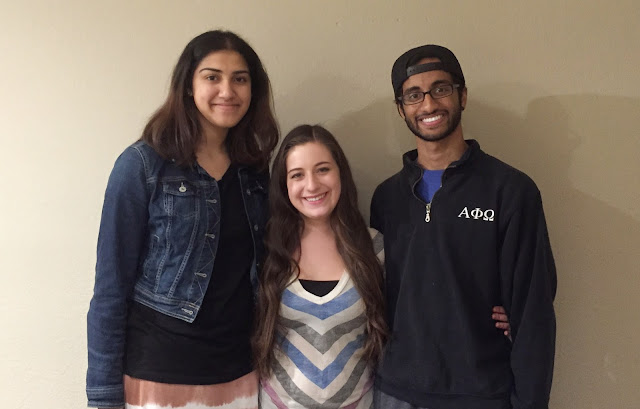Results of Community Based Team Projects
by Justin Chacko, Sheila
Shenoy, Nicole Tauster
What?
We worked with Dr. Pilar
Egüez Guevara, editing and transcribing videos for her project entitled “Comidas
que Curan”, the goal of which is to inform the younger generations of
Esmeraldas, Ecuador about nutrition and how to make traditional foods in
healthful ways. Dr. Guevara traveled to Esmeraldas
and interviewed several abuelas about traditional dishes that
they have been preparing for their families for years. She filmed these women
preparing the dishes and then spoke with them afterwards about the preparation
and personal connections they had to each food. We used a lot of the footage,
which was in separate clips to help her edit the individual video segments and
render them together into one cohesive product. We transcribed some of the
clips by adding subtitles in certain parts
to make a professional-looking final product that she could post on her
website.
So what?
It was important -- not
only to us but also to Dr. Egüez Guevara -- that these videos were as professional
and didactic as possible. While the cinematography was aesthetically pleasing,
the most important point to get across was the information presented. Editing
and putting together a short video merely showing how to make the recipes would
have been simple, but the only way to truly relay
the information presented was to add text and present it in an educational
manner. The cultural aspects could have been featured in and learned from
academic journals. However, we needed to take into account our target audience,
the young “YouTube generation” of
Millennials. The best medium to communicate with them is not through text, but
rather through technology, specifically quick and fun videos they are probably
more likely to come across.
Now what?
The video will reach a
wide variety of people based on the format the information is presented in, as well
as the fact that YouTube is a popular social media site that connects a vast,
global audience. Many of these recipes are quite old and are not in any
cookbook that can be found. Instead, these traditional dishes are kept only in
the minds of the people of Esmeraldas and passed down orally from generation to
generation. Through the videos, we are able to link the people of Esmeraldas,
particularly the younger generations, and allow them to reconnect with their
heritage and rich culture. Likewise, they can learn a little more about the
nutritional benefits of the recipes from the videos and can lead healthier
lives. As we were working through this project, we discovered a few key
takeaways that we believed could contribute to our future success.
Specifically, we were able to come up with creative ideas that apply directly
to our plans for the following year. Some of our group members are involved
with social media and digital
marketing, and have found these videos as a way utilize video platforms to
combine the aspect of culture with technology to disseminate cultural awareness
to a wide audience. With some of our group members teaching abroad in Spain
next year, we can effectively use the skills we have learned and used
throughout the process of our project to share our experiences outside of the
United States. Those interested will be able to learn a lot about a different
culture, heritage, food and lifestyle.




Comments
Post a Comment